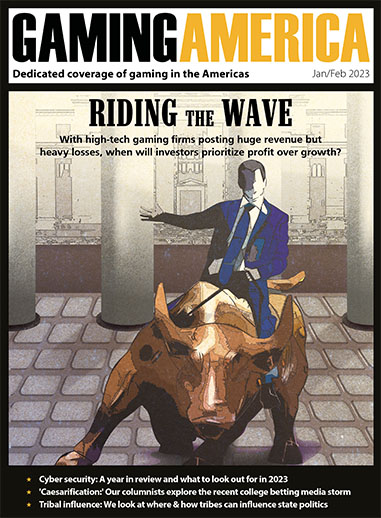
The gambling industry has an ambiguity problem it can ill-afford in the legal sports betting era. I’m talking about the single most crucial message casino operators and gambling equipment providers must clearly communicate: how seriously they take gambling addiction. The end of 2022 saw a wave of negative publicity around legal sports betting. It wasn’t just The New York Times’ series. Unfavorable stories about US sports betting filled the pages of top-tier outlets including The Wall Street Journal, Bloomberg and The Athletic.
This isn’t new. Negative stories about the realized implications of legal sports betting have steadily increased in the four years since the Supreme Court paved the way for legal sports betting outside Nevada. But why are so many outlets focusing on this topic?
It’s low-hanging fruit. Sports betting is now legal in 31 states and Washington DC. That translates into hundreds of outlets that can latch onto the latest instance of an uptick in calls to problem gambling hotlines or minors being marketed sports betting accounts.
"The end of 2022 saw a wave of negative publicity around legal sports betting. It wasn’t just The New York Times’ series. Unfavorable stories about US sports betting filled the pages of top-tier outlets including The Wall Street Journal, Bloomberg and The Athletic."
The recent news stories are putting a bad taste in legislators’ mouths, and we can already see the repercussions. Following November’s media blitz: Sen. Richard Blumenthal of Connecticut called for an end to sports betting partnerships with colleges; New York legislators announced a bill to impose regulations on sports betting bonuses; and Massachusetts gambling regulators delayed awarding a sports betting license due to concerns about a company’s reputation and whether it took responsible gaming seriously.
The industry pushed back against this recent chorus of criticism in a time-tested fashion: touting gambling companies’ commitment to ‘responsible gaming,’ or as many call it, ‘RG.’ Yet this is another ambiguity issue. RG is a buzzword used within the industry as a catch-all for societal concerns around gambling. But does it effectively resonate with outsiders concerned about gambling harm?
While responsible gaming discussion has its place, the more significant problem is that it feels like the industry is only talking about responsible gaming – not what happens when those measures are not enough. The American public has grown to view gambling as a mainstream form of entertainment through decades of community investment by the industry. This positive perception helped propel sports betting’s rapid legalization in two-thirds of the country. These new sports betting markets are now mature and face mishaps like scandals, advertising violations and increases in compulsive gambling. We can’t stick to the same approach from when nationwide legal sports betting was just a dream. Our message must evolve as the market does.
But it seems like the gambling industry fears that talking about the potential for gambling harm will outweigh the reality that the vast majority of Americans keep gambling safe and fun. Problem gambling solutions are complex. Advocates say the effort requires funding more research, earmarking more revenue for problem gambling resources, and training more mental health professionals on problem gambling disorders.
"RG is a buzzword used within the industry as a catch-all for societal concerns around gambling. But does it effectively resonate with outsiders concerned about gambling harm?"
Downplaying the proportionate realities of gambling issues not only makes it taboo to discuss but also inadvertently stigmatizes people fighting their own battles with the disorder. If you look at the big picture, society has been actively working to destigmatize mental health issues by letting people know that it’s okay to struggle with depression or anxiety, and that it’s good to get help.
All gambling stakeholders can start making incremental progress today by changing how we communicate these key issues to make sure there is zero doubt about the industry’s commitment to preventing gambling harm. First, expand the dialogue beyond ‘responsible gaming’ to meet the new challenges of sports betting’s ubiquity. Broaden the everyday conversation around responsibility to include problem gambling, underage gambling, gambling addiction, and compulsive gambling on a regular basis. Normalizing these terms also plays a role in destigmatizing them.
Media, legislators and regulators have forced the industry to shift to defense. That protective stance, however, presents a major opportunity to meet those with questions on their turf while modernizing our messaging for the inevitable next wave of pushback.But if the industry continues to avoid acknowledging the problem, it’s not hard to see a future that holds increased regulation and a halt to future expansion. In any regulated industry, building trust and confidence starts with owning the issue.
We must realize that, for most people, gambling is a form of entertainment. But for others, it can lead to addiction and mental health issues. We can’t keep touting the industry’s commitment to ‘RG’ every time there’s a scandal. If the gambling industry wants to demonstrate its commitment to preventing gambling addiction, let’s stop talking just about ‘RG’ – and start talking about the root problems.

